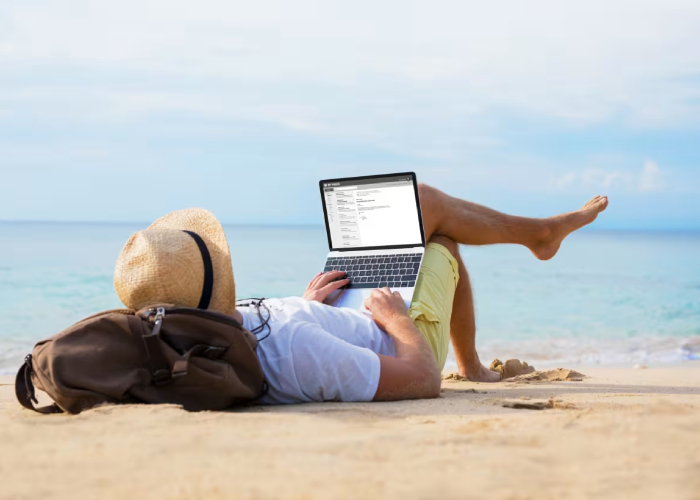In an era of constant updates, tagged locations, and carefully curated travel photos, a surprising trend has emerged: quiet vacationing. In 2025, more people are choosing to unplug, travel discreetly, and return home without posting a single beach pic. It’s not secrecy—it’s self-preservation. And it just might be the most luxurious way to travel right now.
What Is Quiet Vacationing?
Quiet vacationing is exactly what it sounds like: taking a trip without broadcasting it to the world. No Instagram countdowns. No stories. No emails that say, “I’ll be OOO.” Some people don’t even tell their boss. It’s not about hiding—it’s about protecting peace.
Unlike the “revenge travel” era that followed the pandemic—where every trip was shared in hyper-detail—quiet vacationing is a response to burnout, overexposure, and the pressure to turn every experience into content.
Instead of documenting, travelers are experiencing. And that’s a radical shift in 2025.
Why This Trend Is Resonating Now
We’re living in a time of notification fatigue. Between group chats, email chains, and constant pings, people are more digitally drained than ever. Even travel, which once offered escape, has become performative.
Quiet vacationing allows for true disconnection—not just from work, but from the need to be “on” for an audience. It’s about reclaiming travel as something deeply personal, not publicly validated.
It also reflects a broader cultural shift toward prioritizing privacy as a luxury. The idea that not everything needs to be shared, and that withholding can feel more powerful than oversharing.
How Gen Z Is Leading the Movement
While millennials helped pioneer the era of social sharing, Gen Z is now steering the pendulum back. They’re setting boundaries around their personal lives, curating smaller digital circles, and embracing what they call “soft logging”—posting long after a trip is over, or not at all.
Some even go so far as to leave their phones behind or bring a separate, low-tech device for emergencies. To them, quiet vacationing isn’t boring—it’s freeing. It’s a form of rebellion against surveillance culture and the constant commentary that accompanies it.
In true Gen Z fashion, it’s a vibe—and a boundary.

The Wellness Connection
Quiet vacationing is also closely linked with wellness travel. Instead of cramming in must-see landmarks or photo ops, travelers are seeking solitude, nature, and restorative experiences. Forest cabins, desert spas, and digital detox retreats are booming—not just because they’re beautiful, but because they offer true stillness.
And without the pressure to document every moment, travelers often report feeling more present, more connected, and more rejuvenated by the end of their trip.
In other words, quiet vacations don’t just look different—they feel different.
But What About Work?
Here’s where it gets a little controversial. Some quiet vacationers aren’t just skipping the Instagram post—they’re skipping the out-of-office email too. They’re using their PTO without fanfare, or even using remote days to sneak in a little relaxation.
While this raises ethical questions in traditional office settings, it also reflects a deeper truth: workers are exhausted, and many don’t feel comfortable openly taking time off. Quiet vacationing, in this context, becomes a subtle form of resistance—a way to reclaim personal time without explanation.
It’s not ideal, but it’s understandable.
Tips for Your Own Quiet Getaway
Curious to try this trend for yourself? Here’s how to lean into a quieter vacation:
-
Skip the pre-trip social media buildup
-
Set boundaries with coworkers or clients ahead of time—no need to over-explain
-
Leave your phone in airplane mode during key moments
-
Choose destinations that encourage mindfulness, not spectacle
-
Capture memories for yourself, not an audience
-
Share later, or not at all
The reward? A trip that feels like it belongs entirely to you.
Final Thought
In 2025, quiet vacationing is more than a travel trend—it’s a mindset. It’s the idea that joy doesn’t need to be performed to be real. That rest is more powerful when it’s protected. And that sometimes, the best trips are the ones no one hears about—because you were too busy living them.